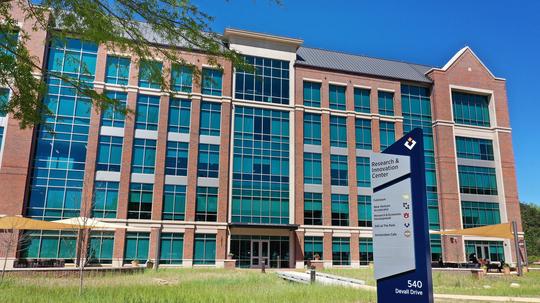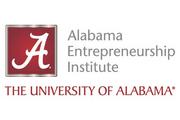
In a rapidly changing world, new challenges require innovative solutions. Problems are often best solved through collaborative work, and these collaborations need a place to flourish — an ecosystem, if you will, in which the best ideas and the brightest talents combine to generate answers and technologies that benefit us all. The Park at Auburn, a world-class research and innovation environment, provides that kind of ecosystem, a space where the whole is truly greater than the sum of its parts.
Key to the development of any entrepreneurial conversion zone is the ability to build intellectual capital by recruiting and retaining top talent and giving them a place to thrive. Auburn has worked to create an inclusive and welcoming atmosphere with an emphasis on collaborative research space where colleagues from every discipline can convene to tackle critical challenges and meet the needs of industry and the public sector.
In that regard, in addition to state-of-the-art facilities already in place at The Park, including a 7T MRI Center, planning has begun for a next-generation research facility that will be built with complete flexibility and design fluidity in mind, allowing diverse groups of researchers to collaborate and reconfigure lab space as often as needed.
As important as physical infrastructure and innovative talent are to this equation, a streamlined organizational structure can be just as significant. With the help of the Auburn Research and Technology Foundation, Auburn has been able to centralize and expedite the collaborative process, leveraging the expertise of the university’s faculty researchers for the benefit of a wide array of industry and government partners. Similarly, streamlining and reorganization of research administrative offices has led to a more efficient organizational team with enhanced capabilities for rapidly meeting the needs of external partners.
One other critical element of Auburn’s success in fostering entrepreneurial activity and advancing economic development has been tech readiness, or the ability to adapt to a changing marketplace. Through The Park’s collaboration with Auburn’s Harbert College of Business, our New Venture Accelerator has been able to incubate startup companies offering a wide range of innovative technologies, from custom 3D-printed athletic pads to modern tools for the utility industry to advanced management and analytics software systems for retail stores, and more.
As Auburn moves forward with a strategic research initiative that will focus on research areas of critical importance, we will continue to see strong growth in the university’s portfolio of technologies ranging from diagnostics and therapeutics to smart systems and environmental remediation tools, among many others. With talented and creative faculty researchers dedicating themselves to solving tough problems, the possibilities are nearly limitless.
Auburn remains committed to solving real-world problems through discovery and innovation. Thanks to efforts made in recent years to recruit and retain top talent, foster a collaborative research environment, streamline our organizational structure, increase our tech readiness and adapt to market needs, we have proven that a successful entrepreneurial ecosystem is not only attainable but also critically important at a time when global challenges demand solutions rooted in collaboration.
To learn more about partnering with Auburn University for research expertise and technology needs, visit research.auburn.edu. Our “front door” is always open.
Auburn University is a nationally ranked land grant institution recognized for its commitment to world-class scholarship, interdisciplinary research with an elite Carnegie R1 classification, life-changing outreach and a top-tier undergraduate education experience. Auburn researchers collaborate to develop meaningful scholarship, science and technologies that meet pressing regional, national and global needs.
James Weyhenmeyer, Ph.D., is Auburn University’s vice president for research and economic development and president of the Auburn Research and Technology Foundation. He has published widely on cardiovascular disease and stroke and has been funded by the National Institutes of Health, the National Science Foundation and the American Heart Association.
